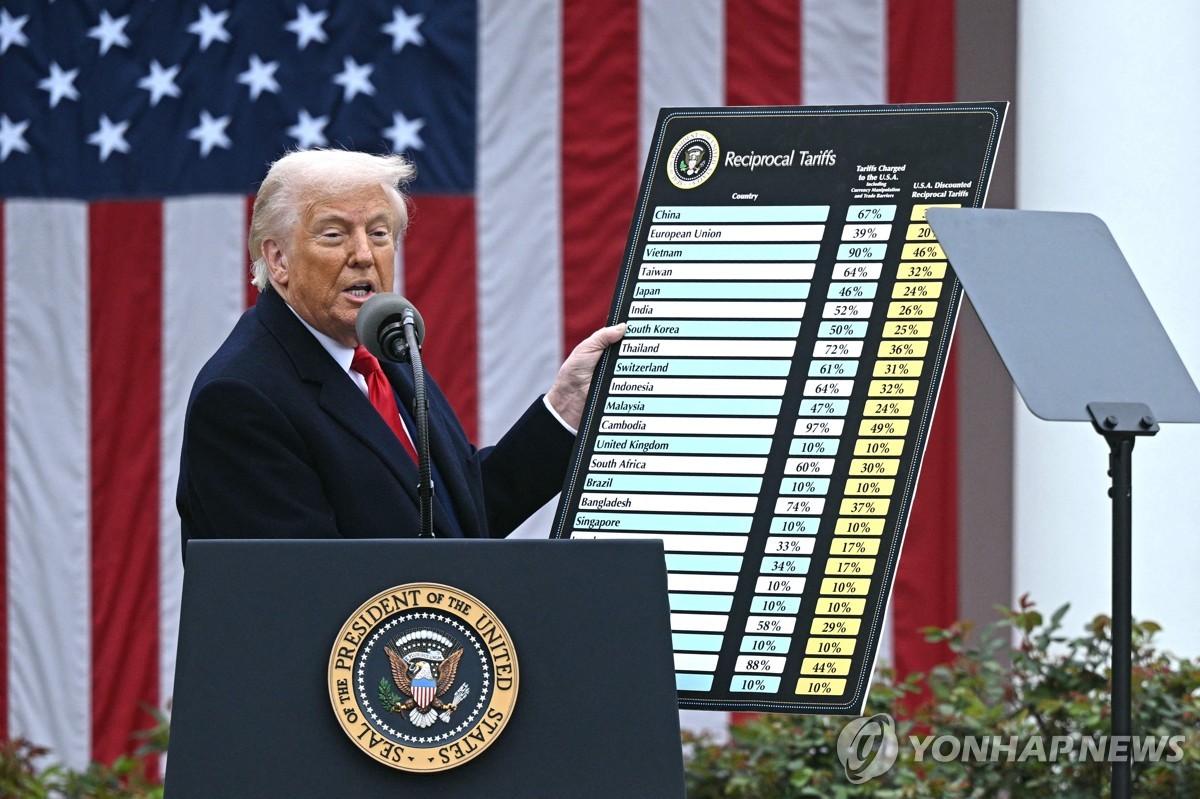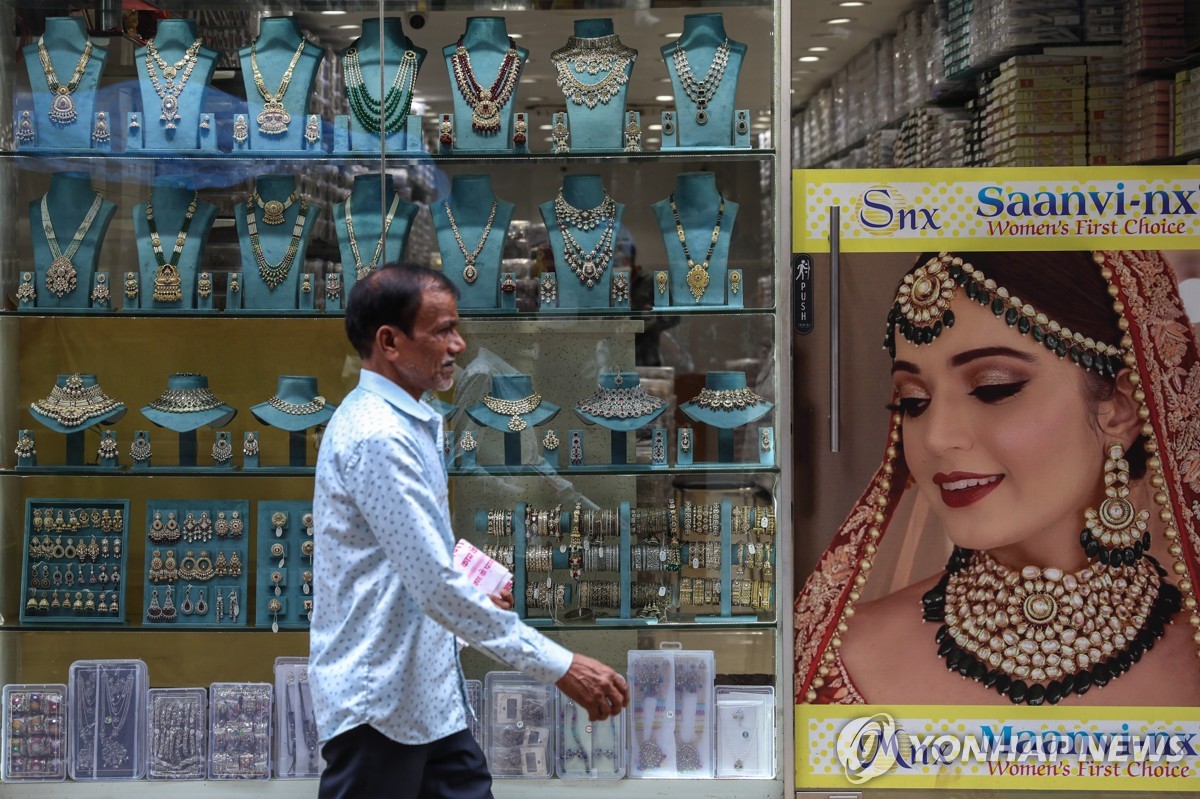
(Jakarta = Yonhap News) Correspondent Son Hyeon-gyu = As the United States announced new reciprocal tariff rates for each of its major trading partners, there were mixed reactions among the Asian countries involved.
Thailand, Cambodia, and Pakistan, which were subject to a 19% reciprocal tariff, evaluated the agreement positively, while India, which failed to conclude negotiations with the United States, was subject to a 25% reciprocal tariff, which was higher than that of neighboring countries, raising concerns even within the country.
According to AP and other sources on the 1st (local time), the White House announced the new reciprocal tariff rates notified to major trading partners through an executive order signed by President Trump that day.
Among Asian countries, Thailand, Cambodia, Pakistan, and Malaysia were subject to the same 19% reciprocal tariff rate as other Southeast Asian countries that had previously reached agreements with the United States, such as the Philippines and Indonesia.
The reciprocal tariff rate for Vietnam, Bangladesh, Sri Lanka, Taiwan, etc. was 20%.
The Thai government welcomed the negotiations with the United States, calling them a major achievement.
The final agreement, which sets a 19% tariff rate, is a significant achievement for Thailand, and is a win-win approach for Thailand's export base and long-term economic stability, Thai government spokesman Jirayu Huangsap said in a statement.
According to data from the Office of the United States Trade Representative (USTR), the United States recorded a trade deficit of $45.6 billion (approximately 63.8 trillion won) with Thailand last year, an 11.7% increase from the previous year.
Cambodia, which initially lowered its tariff rate from 49% to 36% and then to 19% in the final negotiations, also smiled at the final result.
Cambodian Prime Minister Hun Manet wrote on social media that day,"This is the best news for the Cambodian people and economy to continue to develop."
Cambodia is a major producer of low-cost clothing, and most of its $10 billion (approximately 13.9 trillion won) exports to the U.S. last year were clothing.
The United States has previously criticized Cambodia for serving as a transit point for Chinese products bound for the United States, allowing China to avoid high tariffs, citing the fact that many Cambodian factories are owned by Chinese capital.
Pakistan, which recently agreed to jointly develop large-scale oil reserves with the United States, also welcomed the result, which significantly lowered the reciprocal tariff rate from 29% to 19%.
Pakistani Prime Minister Shehbaz Sharif welcomed the"long-awaited" agreement and said President Trump had played a key role in its finalization.
In a statement released the previous day, Pakistan's Ministry of Finance explained that the agreement aims to promote trade between the two countries, expand market access, attract investment, and strengthen cooperation in areas of mutual interest.

Meanwhile, in India, which failed to reach an agreement with the United States after five rounds of negotiations, and only lowered the reciprocal tariff rate by 1% from the 26% announced on April 2, voices of concern have been raised about the future impact on the country's economy.
President Trump previously strongly criticized the trade deal between India and Russia, threatening separate sanctions in addition to a 25% reciprocal tariff.
India is currently the world's third-largest importer of crude oil, after China and the United States, and imports 35% of its crude oil from Russia.
Negotiations between the two countries have stalled as they disagree over reducing tariffs on American agricultural and dairy products.
The Federation of Indian Chambers of Commerce and Industry (FICCI) expressed disappointment with the US announcement and expressed concern over its potential negative impact on the economy going forward.
Harsha Vardhan Aggarwal, Chairman of FICCI, predicted that this (US) action will have a definite impact on our exports.
Indian opposition parties, including the Indian National Congress (INC), also criticized the Narendra Modi government, saying its foreign policy had collapsed overall.
Economist Asia Decoded said that while further trade talks (with the US) could result in lower tariffs, it seems unlikely that India will fare much better than its neighbors.
Likewise, Taiwan, which has been subject to a 20% reciprocal tariff due to the failure to conclude a trade agreement with the United States, maintains that the rate is temporary and could be lowered further once a final agreement is reached.
In a Facebook post that day, Taiwanese President Lai Ching-te said,"A little while ago, the United States notified the Taiwanese negotiating team in Washington, D.C. that Taiwan's 'temporary tariff' would be 20%," adding,"The main reason is that Taiwan and the United States have not yet concluded their final meeting due to the negotiation order arrangement."
He added,"Although the tariffs announced by the U.S. today are temporary measures, we will definitely work harder to obtain and maintain reasonable tariffs and complete the final hurdle in tariff negotiations."
Taiwan recently dispatched a negotiating team led by Vice Premier Cheng Zheng-chun to the United States to negotiate tariffs with the United States.

